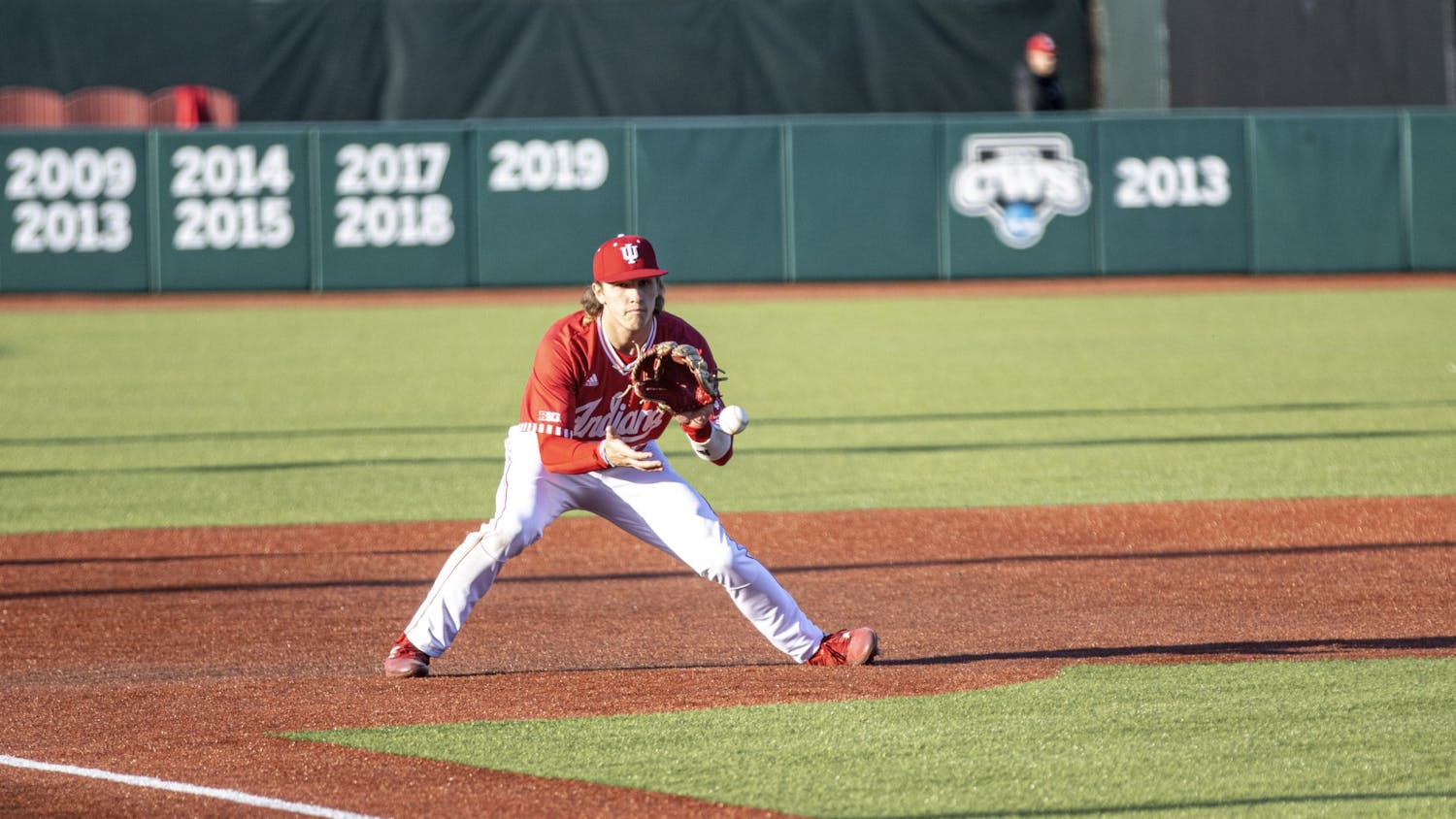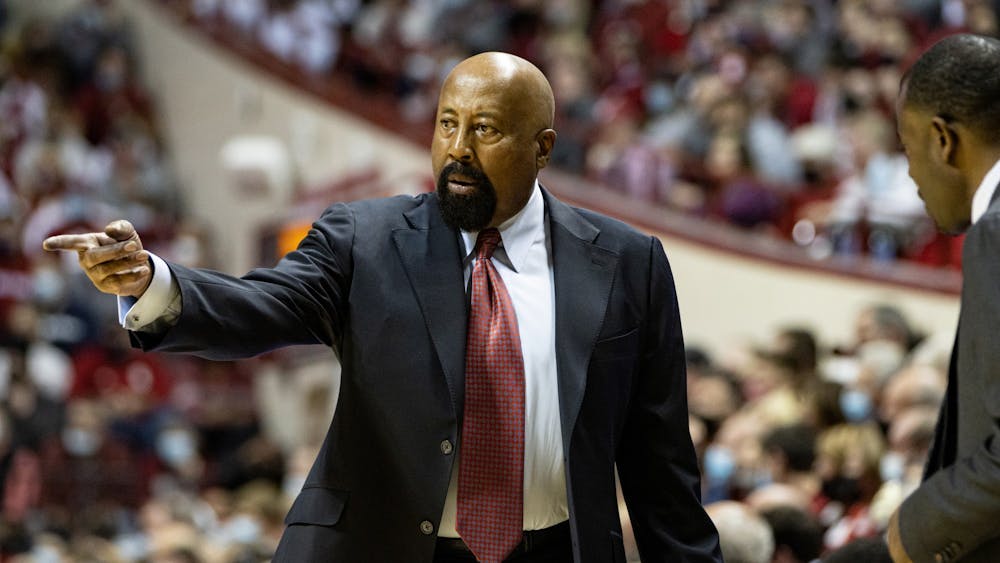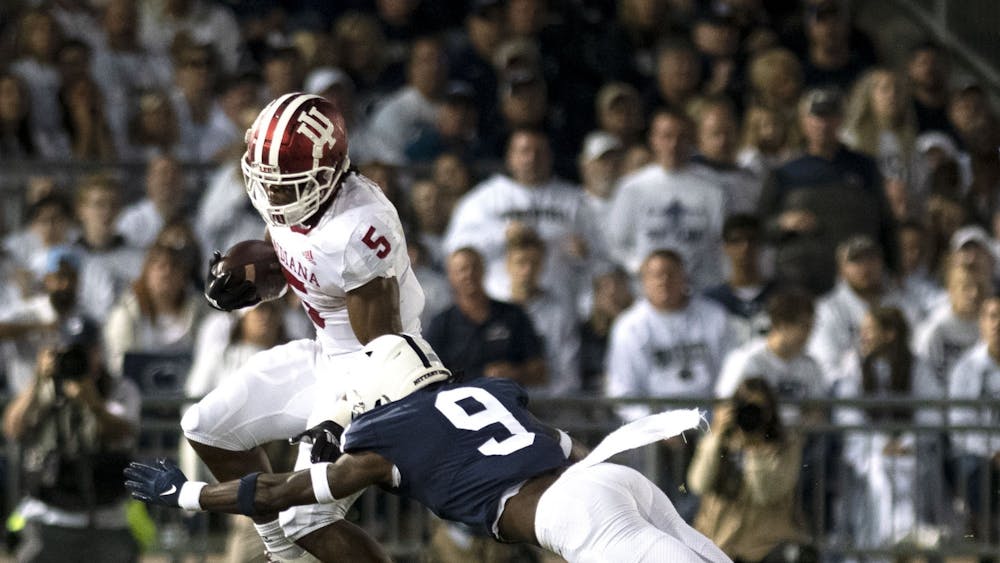What does the future hold?\nIt's a question a lot of us graduating types are asking right now. And it's a tough question to answer when the hardest decision you are used to making each day is "Do I want fries with that?" \nIt isn't just on a personal scale either. With 2004 being an election year, and a very significant one at that, there's a lot to be answered in the big scheme of things.\n2004 is also shaping to be one of the most significant years in collegiate sports. It seems fitting as I leave college, the whole landscape may be changing both nationally and at IU.\nThe NCAA is already taking a serious look at the recruiting process and is aiming to get new regulations in place this summer. Among the items being proposed is cutting the length of a recruit's official visit from 48 hours to 24 hours.\nMany coaches, including Gerry DiNardo, have reservations about such a proposal.\n"The people that we're ignoring are the families of the prospects over the years who have used the experience as a positive one," DiNardo said. "If you want to expose a young person and their family to an institution, two days is better than one."\nI tend to agree. I spent a whole weekend visiting IU. Picking the college you want to attend is what I like to call a "big decision." That decision shouldn't be made tougher just because someone plays football. Recruiting does need to be assessed, but I think this is one area that can be left alone.\nOne significant change that might have affected college football appeared to have avoided for the time being is the early exit of players into the NFL. Since the last court ruling was in the favor of the league, colleges won't have to worry about guys like Maurice Clarett jumping ship before their junior year unless it is to play for a glorious franchise like the Saskatchewan Rough Riders.\nA more recent news item is the National Invitational Tournament's lawsuit that the NCAA violates antitrust laws by not allowing teams to pick between an NCAA bid and an NIT bid. \nIt seems laughable that a team would reject an NCAA bid. The NIT pretty much hasn't been big time since the '50s, and has been even less significant since the field expanded to 64 teams in 1985. But should the money offered by the NIT go up as a result of being able to invite who they want, there may be two big dances instead of one. \nAnd then there is the sad state of affairs at IU. As tuition continues to rise uncontrollably, the last thing students need to be confronted with is a mandatory $30 athletics fee -- we already pay a mandatory technology fee for an e-mail system that crashes on a weekly basis.\nThe reason IU's athletics debt is so pronounced is the failure to bring people to games at Memorial Stadium. No matter how hard they try to make games more fan friendly (unfortunately, the NCAA is unlikely to abide by IU selling beer for a quarter, which would be a possible solution) the problem won't completely be alleviated until it is proven to fans there will be a winning product for them to watch.\nBelieve it or not, I think a winning season is no more than two years around the corner. But it's the immediate dividends IU wants. Increasing student prices for lousy seats at basketball games is another option -- and another poor one.\nIs advertising in Assembly Hall the answer? It may be sacrilege, but I find it preferable to the other options. Not that I like it -- it's kind of like choosing which of your toes you would like to see smashed by a sledgehammer. But I'm not talking about placing ads along the court or changing the name of Assembly Hall to the Avers Pizzadome. Advertising can be done trickily and somewhat classily so it isn't noticed on TV.\nFor instance, Wrigley Field has ads for Southwest Airlines that can only be seen if you are sitting in the bleachers. And Sears has its logo on the dugout walls. Would it be so bad if there were ads placed on the back of seats?\nUnless dramatic changes are made, money will continue to be the catalyst that pushes college sports. And no matter what, IU will have to do something to stop losing it.
What does the future hold?
Get stories like this in your inbox
Subscribe





